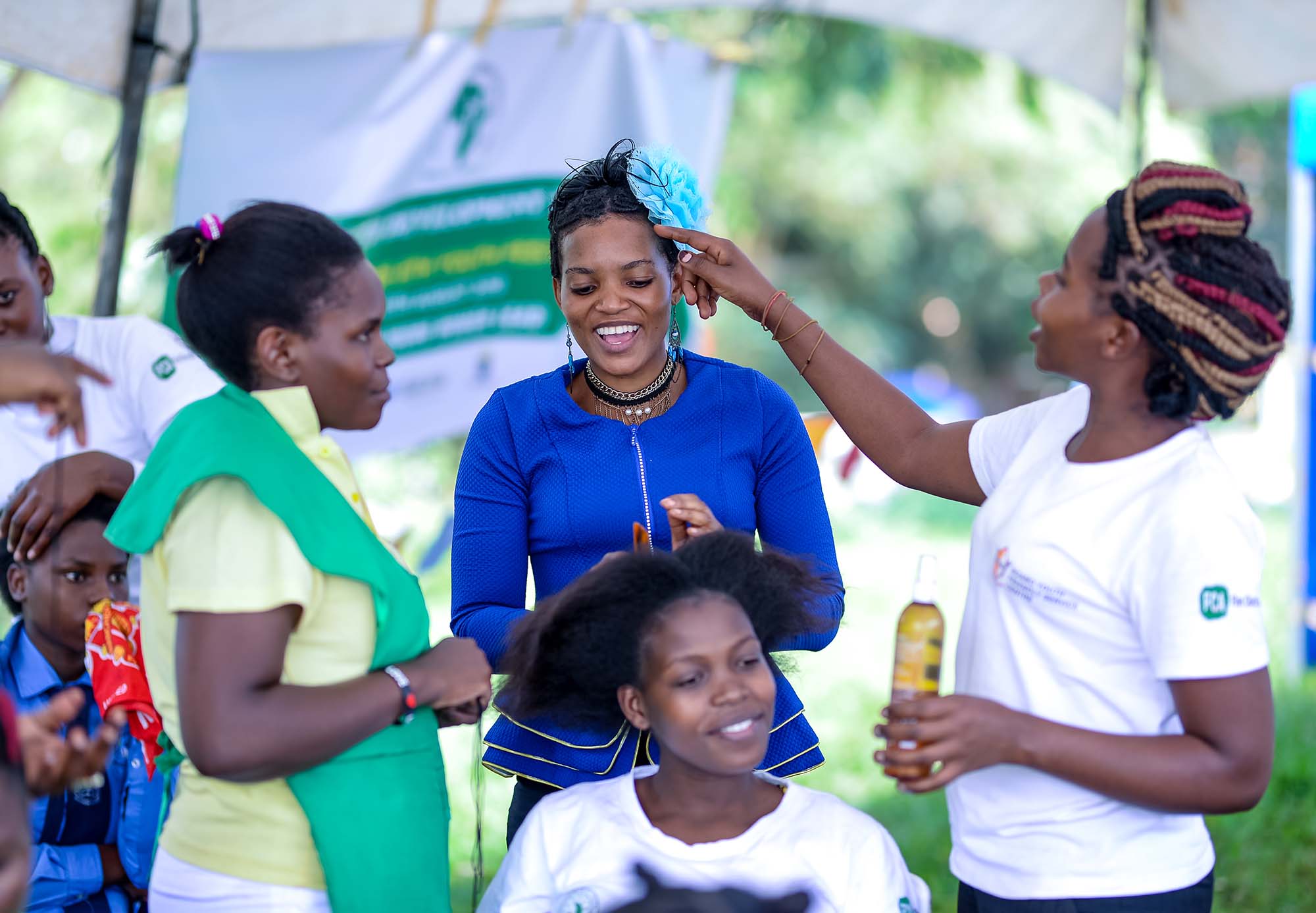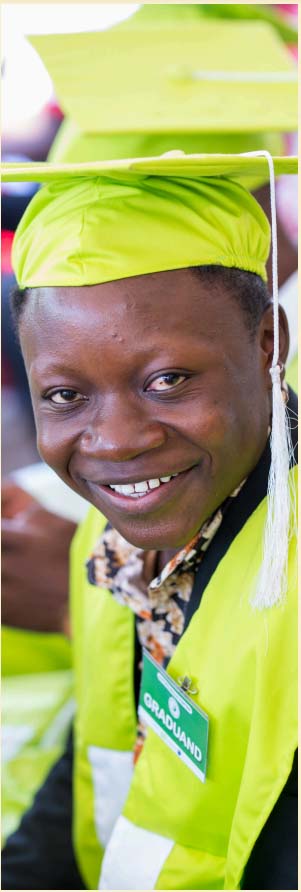
CONCERNS
The right to quality education is firmly rooted in the Universal Declaration of Human Rights and international legal instruments. Education isn’t only a powerful driver of personal development, but also the only surest way to lift the most excluded and disadvantaged out of poverty, improve health, and level inequalities. It is also crucial to fostering understanding, cultivating tolerance between people, and advancing peace & stability. It doesn’t only liberate the intellect and unlock human imagination but also makes it possible for each of us to contribute to the progress of our communities and our world. Yet worldwide, 244 million children and youth are still out of school for social, economic, and cultural reasons, and over 80 million of these are in Sub-Saharan Africa.

SOLUTIONS
Our education solutions have so far largely targeted vulnerable youth from poor and violent criminal backgrounds. Specific actions executed involve studies to enhance understanding of marketable skills, and trades, as well as potential private sector partners in education, free vocational skills training, career education & mentorship, strengthening the capacity of teachers to effectively engage vulnerable youth populations, supporting the building of safe classrooms, mainstreaming peace education, and supporting computer and digital literacy.
OUR GOALS
To empower young people from poor and violent criminal backgrounds who fall out of the school system through the provision of free and equal access to vocational training.
To deliver a complimentary education curriculum that enhances retention of vocational skills training beneficiaries, and boosts their career preparedness & competitiveness.
Strengthen the capacity and self-efficacy of educators to support vulnerable youth and contribute to peace through education.
To support efforts to build inclusive classrooms, and effective learning environments for all.
Support the provision of learning opportunities for people of all ages in crises.
KEY ACHIEVEMENTS
Periodic market assessments have been conducted to identify marketable skills, and findings used to inform evidence-based programming for our vocational skilling initiatives.
Periodic scoping missions have been carried out to map and select private sector actors to support our vocational skills learners to gain employable skills and link learning to earning.
Our Vocational skills training instructors have been periodically equipped in pedagogical, business, career guidance, counseling, and psychosocial support strategies to boost support systems around vocational skills trainees.
We Introduced vocational skills trainees to standard assessment by the Directorate of Industrial Training which has further boosted the credibility and competitiveness of their skills.
700 vulnerable female and male youth equipped with marketable vocational skills and working life experience through our dedicated Vocational Skills Training Centre and the Chance Scholarship & Apprenticeship training program. The beneficiaries have also been examined by the Directorate of Industrial Training, linked to potential employers, and others received support for self-employment.
Equipped Teachers and CSOs working in education in participatory ‘popular education’ which draws on the knowledge and experience of different stakeholders in the community as a means to designing locally appropriate strategies for community change and the positive empowerment of youth.
Supported the Education department of the Uganda Muslim Supreme Council to develop a new and standard curriculum for lower-level madrasa education in Uganda, significantly limiting the chances of exploiting this education system to advance extremist narratives.
Supported the printing and dissemination of 2764 copies of the new Madrasa curriculum and the launch of the same with blessing from the Ministry of Education.
Supported the re-skilling and retooling of over 90 Imams, Amirats, and Islamic Theological teachers in the new curriculum, mainstreaming themes on peacebuilding, conflict resolution, and building safe & inclusive classrooms.
District Education Officers, Headteachers, and teachers equipped through Training of Trainers courses in Peace Education.
83 young men and women have received Computer and digital skills training and assessment by the Directorate of Industrial Training which has enhanced their preparedness for a technologically driven business operations environment.
Developed a Peace Education manual in collaboration between Finn Church Aid (FCA) Uganda and the Teachers Without Borders (TWB) network in Finland. Core learning areas of the manual include Cooperation with 8 lessons and sub-topics, Conflict with 8 lessons and sub-topics, Peacebuilding with 6 lessons and sub-topics, Youth participation with 4 lessons and sub-topics, and Taking action with 6 lessons and sub-topics.

